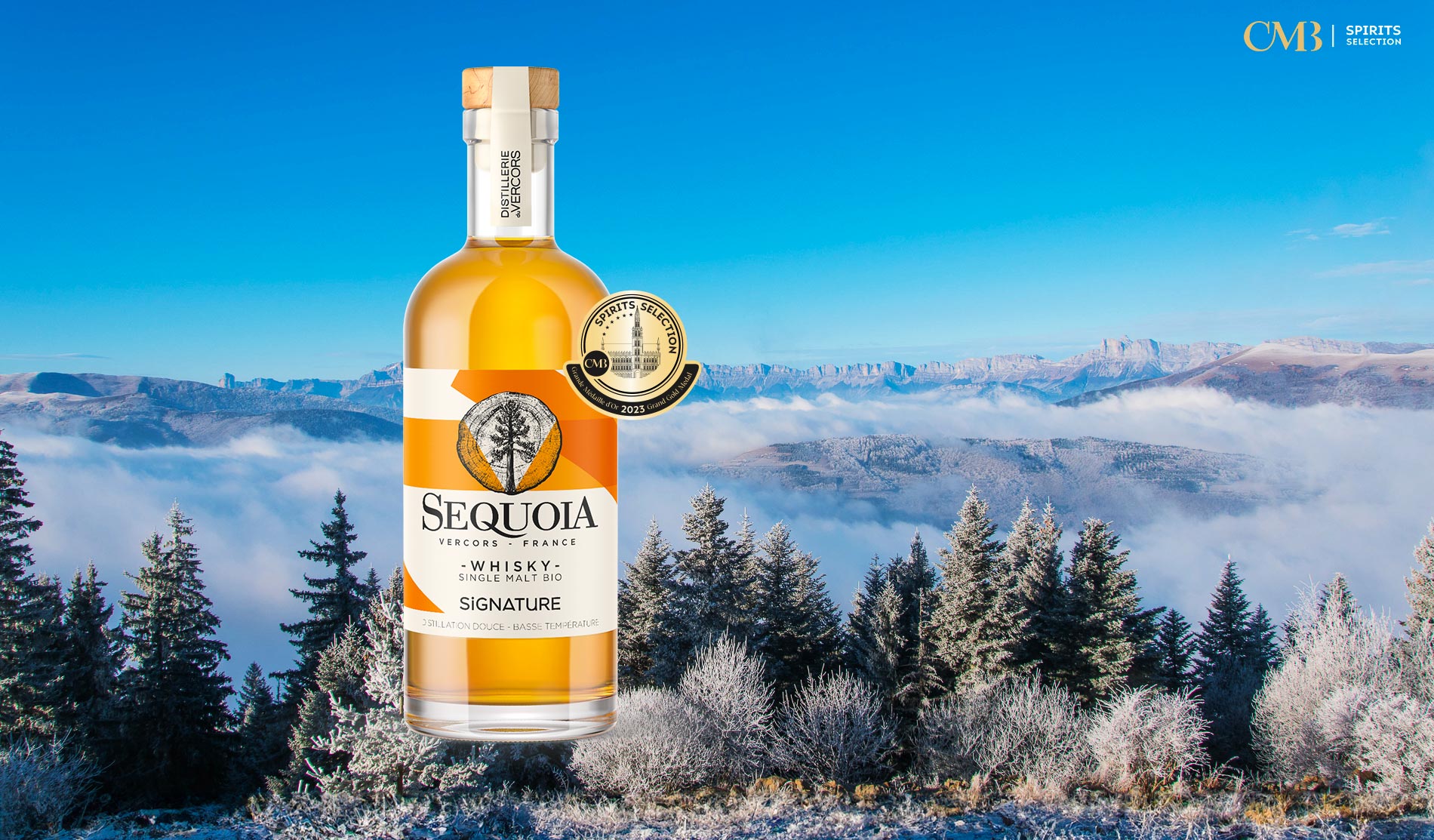Prime Uve – Grape Aquavite that Transcends the Boundaries of Brandy
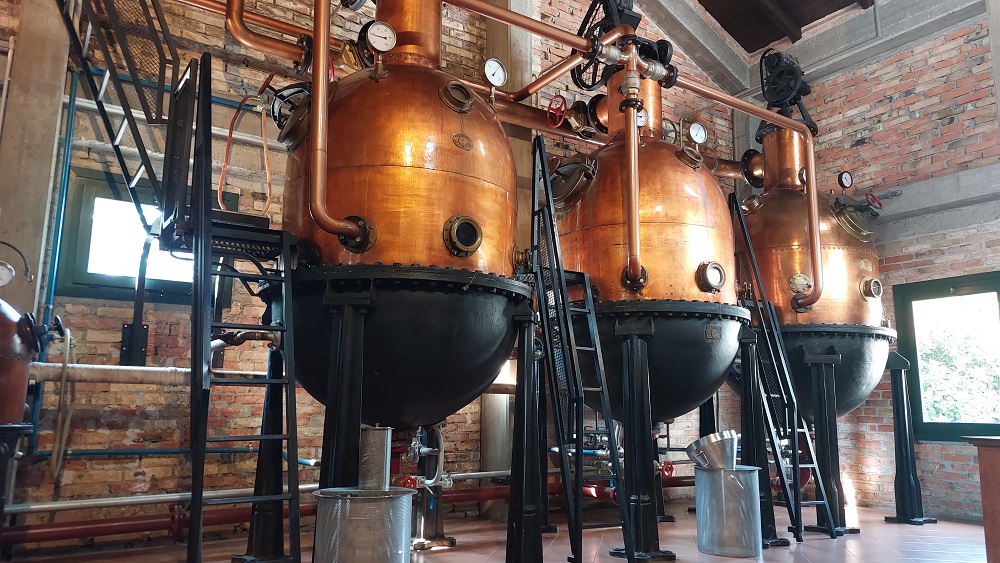
Bonaventura Maschio’s expertise reveals a unique grape distillate that goes beyond the traditional borders of brandy. In an interview with Andrea Maschio, the current administrator, we delved into the world of this exceptional distillate and discovered the manufacturing secrets that set it apart from classic brandy.
For over a century and across five generations, the Bonaventura Maschio distillery, nestled in the Veneto region, has upheld the tradition of distillation. What makes them particularly exceptional is their bold exploration of new avenues, leading to the creation of the famous “Prime Uve” – a grape distillate whose subtlety and character take you by surprise.
Thierry Heins: Andrea, could you tell us more about this grape distillate? How does it differ from a wine distillate?
Andrea Maschio: In 1984, Italian legislation permitted distillation of grapes, opening up new possibilities. Before that, only grape pomace distillation was permitted. We immediately seized this opportunity. However, instead of distilling wine to obtain brandy, we chose to distill whole grape must. The process of creating our “Aquavite de Uva” differs from that of brandy. Firstly, we macerate whole grapes, including their skins, without crushing them. Then, the fermented must obtained is directly transferred into the still, retaining all the solid parts. To preserve the unique aromatic qualities of our distillate, we had to develop innovative technology and design a specifically adapted still.
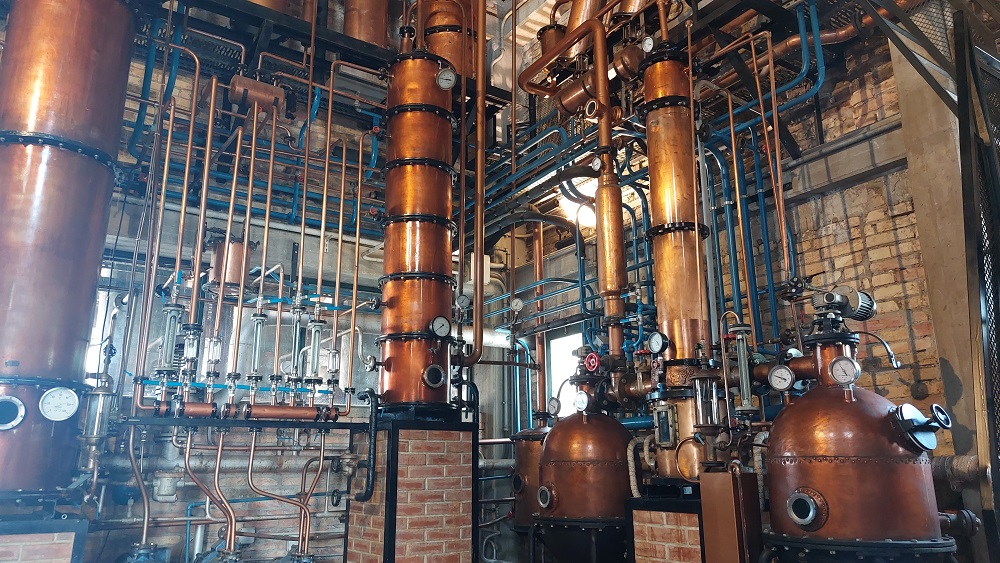
T.H.: Could you explain what this egg-shaped still is?
A.M.: Initially, we distilled our whole grape must in our grappa stills, operated by injecting steam. However, we were not satisfied with the result. We aspired to something more refined, more complex than a traditional pomace brandy. That’s why we conducted research in collaboration with Udine university to design an innovative still model. Our goal was to combine vacuum distillation with the “bain-marie” method to obtain a very smooth distillate while preserving the delicate grape aromas, which are extremely sensitive to temperature. That’s how we discovered a bain-marie still operating under negative pressure in Emilia-Romagna.
Originally used to produce tomato concentrate from peeled tomatoes, the still offered an ideal solution. It was designed to preserve the freshness of tomatoes without altering them with excessive heat. We realized that it perfectly suited our needs. These stills had become obsolete for the tomato concentrate producer, who had switched to a continuous concentrator to prevent oxidation of the peeled tomatoes. For our Prime Uve, batch distillation was not a problem since the must, liquid and alcoholic at the same time, doesn’t oxidise
So, we acquired these stills in 1985 and made some modifications, including moving the vacuum pump after the condenser. We perform a single distillation at 60°C because we found that double distillation resulted in a loss of aromas. Our fermented juice is both colorful and extremely aromatic. The fermentation, which lasts between 15 and 18 days at low temperatures, imparts a unique aromatic richness to the must. It is then distilled directly. We use various grape varieties, both white and red, but the white Glera grape is particularly showcased. Thus, our distillery is closely linked to the world of Prosecco.
Thanks to our distillation method, there is no need to eliminate the first and last parts of the distillate. Methanol, usually occurring in the first parts, is produced during fermentation when the grapes and seeds are crushed. Since we crush gently the grapes and they ferment in their own liquid, methanol production is reduced. Removing the last parts is necessary to get rid of ethyl acetate, which can form in poorly preserved pomace contaminated with bacteria. In our case, we don’t have this problem because the grapes are immersed in liquid.
Our distillate has a structure closer to that of a gin than a grappa. It is elegant, smooth, light, fruity and floral.
« Our goal was to combine vacuum distillation with the “bain-marie” method to obtain a very smooth distillate while preserving the delicate grape aromas, which are extremely sensitive to temperature. »
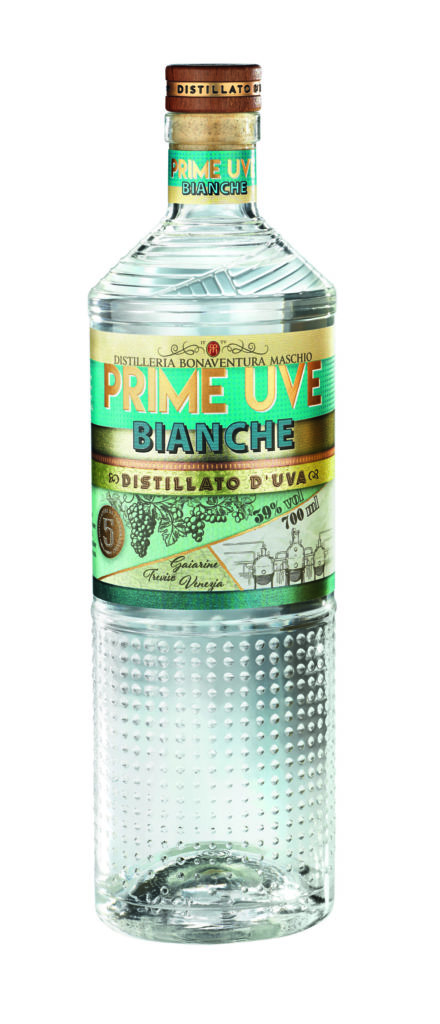 |
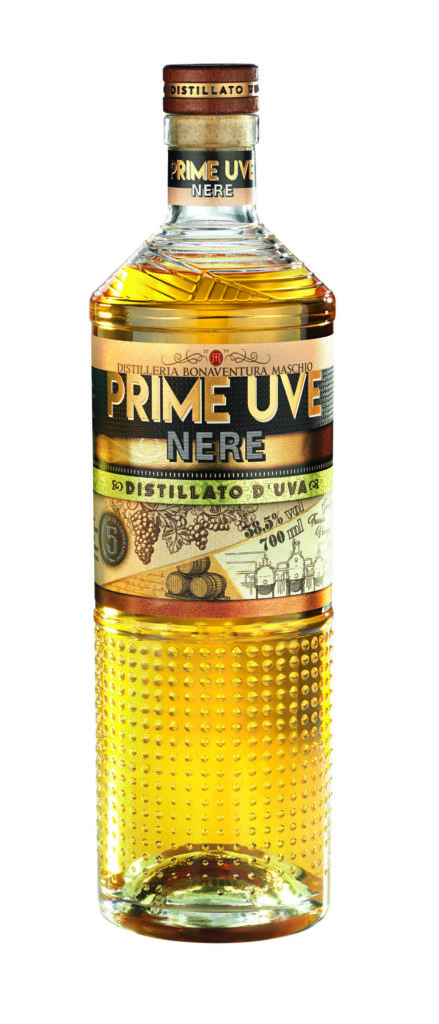 |
T.H.: Would there be a similarity with Peruvian pisco?
A.M.: Yes, indeed, there is some similarity with Peruvian pisco, a South American brandy also obtained through simple distillation. In our case, you could even call it “Pisco Mosto Verde” because we stop fermentation slightly before all the sugars turn into alcohol. The alcohol content of our distillate ranges from 40% to 50%, placing it below that of grappa. When we plan to age our distillate in barrels, we use a small rectification column to slightly adjust its profile.
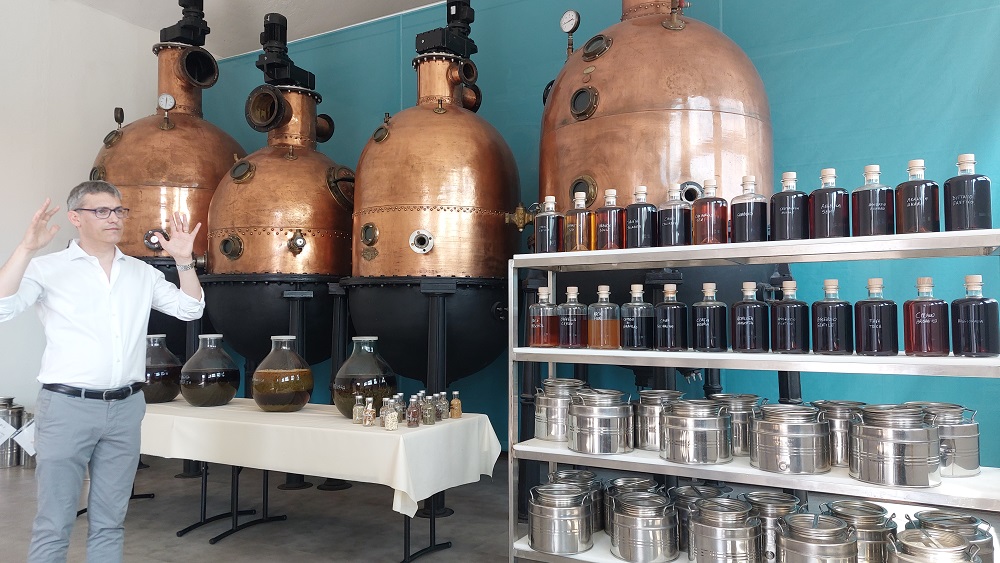
T.H.: However, you continue to produce grappa, don’t you?
A.M.: Absolutely, grappa still represents 50% of our production. We are proud of our well-known Grappa 903 brand, as well as our Gaiarine grappa. Our method of grappa distillation involves direct steam injection through the grape pomace. Nevertheless, our Prime Uve holds a special place in our hearts because it offers something different. Grape distillate producers are relatively rare. When you produce grappa, you don’t have direct control over the raw material. Choices are determined based on the wines to be produced. Producers primarily focus on their wines, and we must respect their decisions. The quality of grappa largely depends on the freshness of the pomace.
The innovative spirit of the Maschio family continues to push the boundaries, and each generation adds its personal touch to the family legacy. Inviting enthusiasts to discover their products, Bonaventura Maschio proves that the history of distillation can be both traditional and resolutely forward-looking.
Thierry Heins


